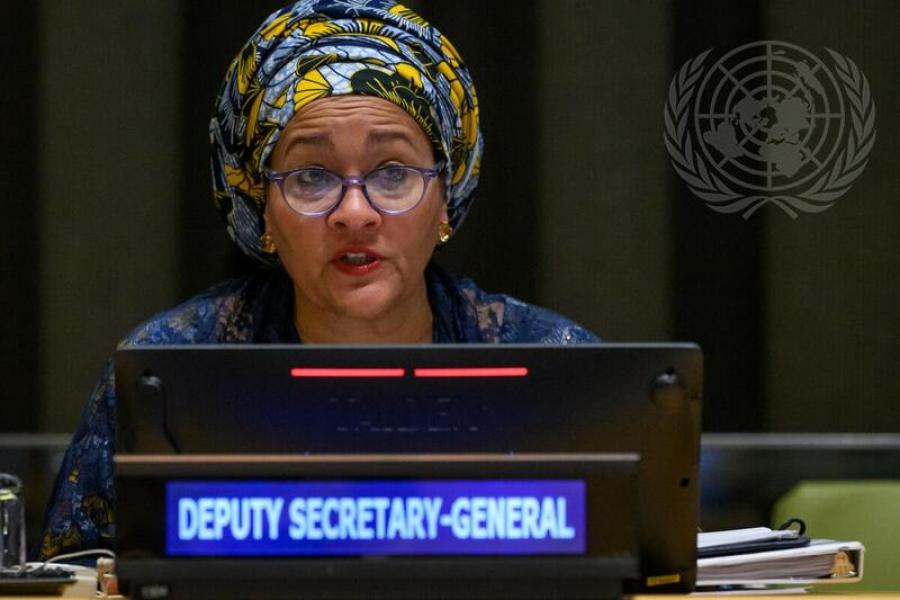Financing for Development
03 December 2024
Domestic Resources Are at Core of Development Financing

Following are UN Deputy Secretary-General Amina Mohammed’s opening remarks at the second session of the Preparatory Committee for the Fourth International Conference on Financing for Development, in New York on 3 December:
Welcome to the second session of the Preparatory Committee for the fourth International Conference on Financing for Development. At the first Preparatory Committee in Addis Ababa in July, we took stock of our progress since 2015, and we set an ambitious tone for the fourth International Conference on Financing for Development.
Shortly after the Addis Ababa Preparatory Committee, our co-facilitators issued a call for inputs, generating close to 300 contributions. A truly inclusive stakeholder gathering.
This reflects the high expectations that you -- Member States and other key stakeholders -- place on the Fourth International Conference on Financing for Development. These inputs informed the elements paper, which includes proposals to deliver transformative change across the Addis Ababa action areas in Sevilla next year.
We cannot falter. The Sustainable Development Goals (SDGs) have stalled. They can only be rescued by unlocking the scale and quality of finance required to power investments; by loosening the grip of debt service that is crippling dozens of countries; and by protecting economies from the external shocks that characterize today’s interconnected world. Yet, you are all here to maintain the momentum and ensure a high degree of ambition remains.
Yesterday’s Academic Day started us off in the right direction -- with substantive discussions on the latest research and policy recommendations on the international debt architecture, on feminist fiscal policy to meet the SDGs, and on global tax reform. I hope these panels inspire you as you consider the proposals that are being put forward by the co-facilitators. Let me highlight a few.
Domestic resources are at the core of development financing, and the compact between citizens and States. No country should fall below a minimum of resources raised so that it can meet the core obligations to its people. It is time for us to establish a commitment to support all developing countries to raise their tax-to-gross domestic product (GDP) above 15 per cent.
We must also do better in mobilizing private investment. After 10 years of the billions-to-trillions discussions, we still don’t see results at the scale or impact required. Let’s make firm commitments to do better on blending: to focus on impact, to utilize instruments at scale and to align with national priorities.
On international development cooperation, we must revive our discussions around, and the commitment to, effective support -- in addition to increasing international public finance, we must do better with what we have.
The fourth International Conference on Financing for Development also represents an important opportunity to fulfil the vision articulated in the Pact for the Future on financial architecture reform. Let us address debt with bold ambition and create a debt architecture that truly empowers sustainable development. Building on important reforms to date, next year’s conference should lay out a clear and actionable road map for expanding the capital bases of multilateral development banks.
In Sevilla, we must transform special drawing rights to make them more effective for future crisis response and unlock their full potential through rechannelling via of multilateral development banks.
Finally, at the fourth International Conference on Financing for Development, we must pledge concrete actions to strengthen the voice and representation of developing countries in international financial institutions, ensuring that they become genuinely inclusive and more effective.
This would be real and transformative change. I urge us all to be bold. Push boundaries. Find where we can aim higher. And make sure that your reforms match the scale of ambition that is needed for the 2030 Agenda. Together, let us honour our 2015 commitments for a more sustainable, peaceful and prosperous world for all.
[END]



